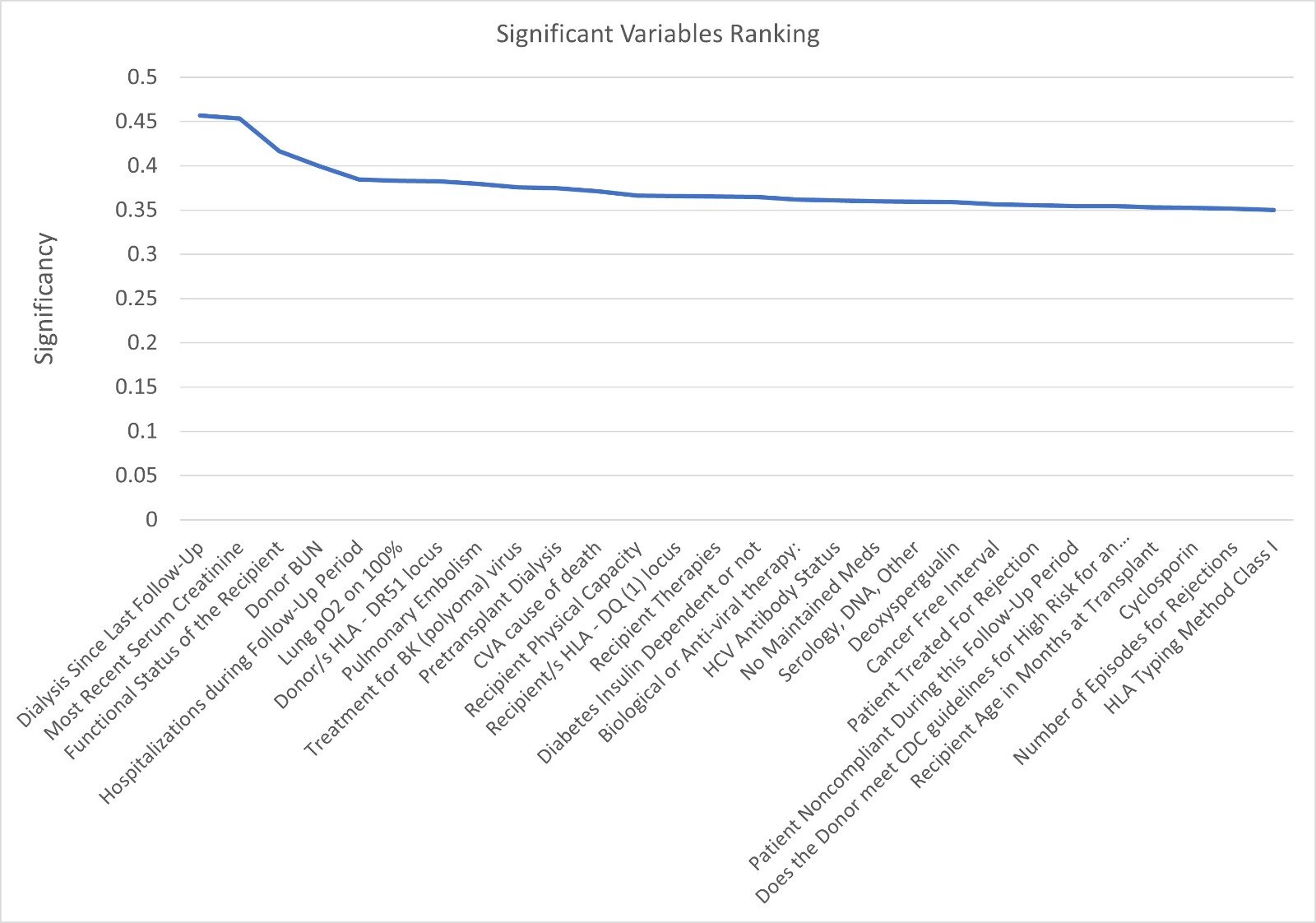Deep neural network model can effectively determine and rank the predictors of failure after kidney transplantation in patients younger than 18
Orkideh Olang1, Amir Sabet1, Sana Mohseni1, Nick Sajadi2, Ebrahim Pourjafari2, Amir Samiezadeh2, Mohammad Alavinia3, mohammad shafiee1.
1General Internal Medicine, Toronto General Hospital, Toronto, ON, Canada; 2Ortho BioMed Inc., Toronto, ON, Canada; 3KITE Toronto Rehabilitation Institute, University Health Network, Toronto, ON, Canada
Introduction: The population of young patients under 18 who suffer from End Stage Renal Disease (ESRD) represents a significant portion of the ESRD population in the United States [1]. These patients although comprising only 5% of the ESRD patients, need special attention as they require kidney transplants from well-matched donors to achieve optimal graft survival rates [2]. In order to improve the success of these transplants, we propose a new machine learning algorithm called Deep Neural Network (DNN) to identify the factors that with greatest impact on graft failure in patients under 18 years of age.
Methods: We used the data from the Scientific Registry of Transplant Recipients (SRTR) dataset to train the DNN model. The dataset included 10,788 records of recipients and their donors from 1995 to 2019, with follow-up data until 2020. Two DNN models were trained using survival analysis and 322 variables were considered for training. One model aimed to predict the kidney allograft failure time, and the other aimed to rank the relevant variables. The Kolmogorov–Smirnov test was used to determine the rank of significant variables for the goodness of fit, considering a p-value of ≤ 0.05.
Results: The DNN models developed in this study identified 28 variables as the most significant factors affecting the failure time without any pre-selection assumptions. The recipient's latest hospitalizations during follow-up, functional status, pulmonary embolism, treatment for BK virus, pre-transplant dialysis, physical capacity, patient non-compliance, rejection events, and presence of vascular disease were found to be crucial factors in graft failure. Graph 1 illustrates a list of variables found to be significant from the donor side.

Conclusion: This study highlights the potential of DNN models to improve the understanding of factors that contribute to the success of kidney transplants in young patients under 18 years old. The DNN model proposed in this study has successfully demonstrated its utility as a predictive model in graft failure. By targeting specific factors such as recipient’s compliance and functional status, healthcare providers can achieve a better success rate in organ transplantation. Further prospective research is warranted to confirm the findings of this study.
We sincerely thank Health Canada for their kind support and funding of the challenge ”Machine learning to improve organ donation rates and make better matches” (Challenge ID: 201906-F0022-C00008)..
References:
[1] Ferris M, E, Miles J, A, Seamon M, L: Adolescents and Young Adults with Chronic or End-Stage Kidney Disease. Blood Purif 2016;41:205-210. doi: 10.1159/000441317
[2] Lankarani MM, Assari S, Nourbala MH. Improvement of renal transplantation outcome through matching donors and recipients. Ann Transplant. 2009 Oct-Dec;14(4):20-5. PMID: 20009151.
Lectures by Orkideh Olang
| When | Session | Talk Title | Room |
|---|---|---|---|
|
Tue-02 14:00 - 14:25 |
Abstracts Session 4 | Deep neural network model can effectively determine and rank the predictors of failure after kidney transplantation in patients younger than 18 | Grand Georgian |
|
Tue-02 14:00 - 14:25 |
Abstracts Session 4 | Artificial Intelligence Algorithm Predicts Kidney Transplant Outcome by Using Donor-Recipients Factors: Study of 142,971 Transplant Pairs | Grand Georgian |
